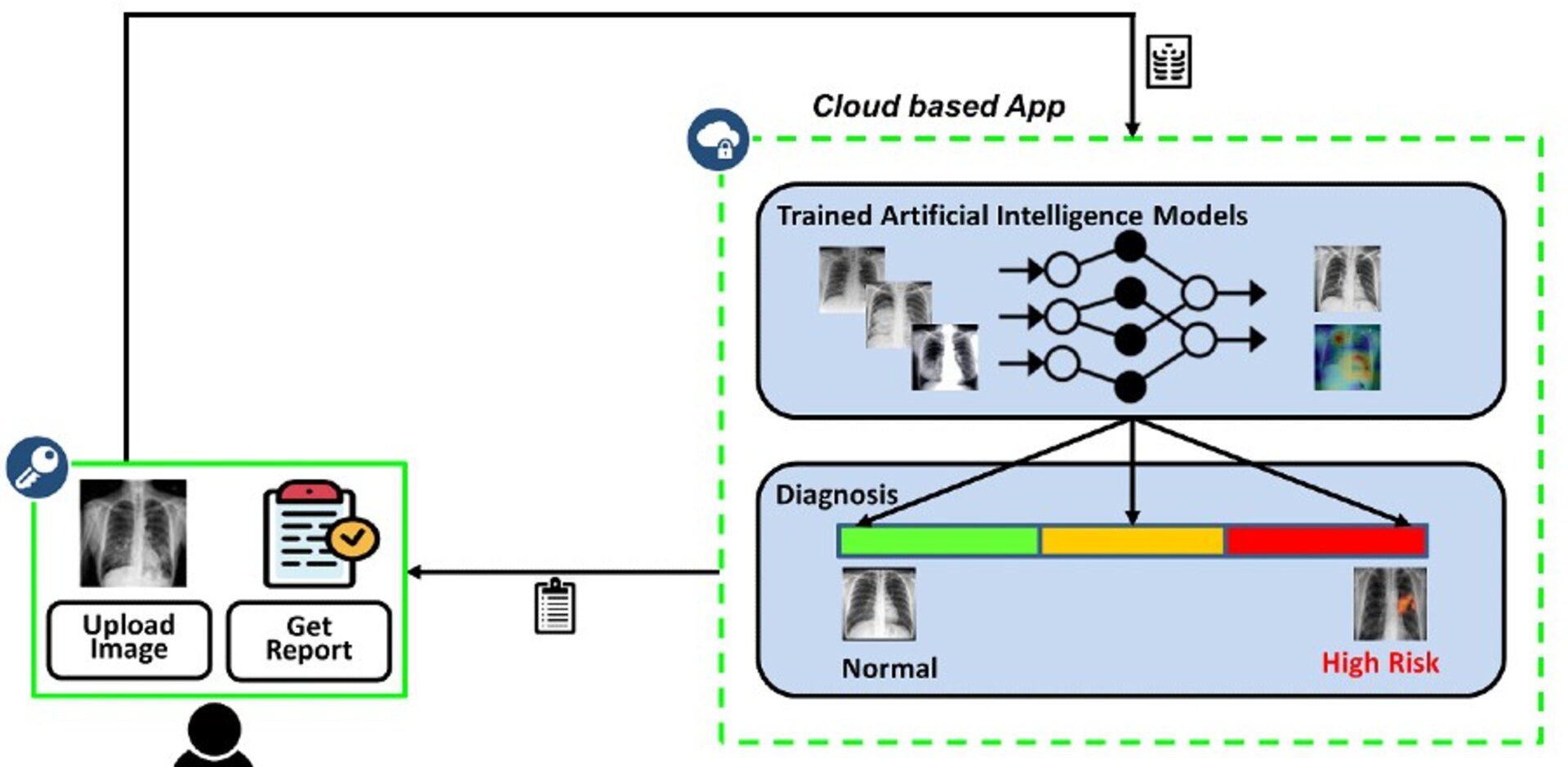X-ray app to ease burden on lung specialists and save lives

Researchers are working on a form of artificial intelligence that can help medical staff prioritise lung-disease severity – saving lives and easing the burden on hospitals in COVID-hit regions around the world.
A Glasgow Caledonian University (GCU) team will develop an app that will work with existing X-ray technology to identify a host of lung diseases in their early stages, such as cancer, tuberculosis and pneumonia.
The researchers say, globally, 4 million people die prematurely from chronic respiratory disease each year, with figures especially high in low- and middle-income countries, which has been exacerbated by the COVID-19 pandemic. Researchers are concerned this has put an enormous pressure on skilled medical practitioners in these countries, who are generally located away from rural areas.
Therefore, the research team is seeking to create an app that allows X-ray images to be uploaded and analysed using state-of-the-art trained artificial intelligence models for the presence of different lung diseases. The result, based on the diagnosis, will be available for immediate download, meaning only urgent cases will be referred to a major hospital.
The prototype app will be trialled in Pakistan, where lung-related diseases accounted for 4.48% of deaths in 2018.
Dr Sajid Nazir, of GCU’s School of Computing, Engineering and Built Environment and who is leading the research team, said: “Our app will provide a timely, accessible and low-cost solution that, with wider deployment, can take significant pressure off major hospitals and medical practitioners by only referring the cases requiring a hospital visit.
“X-ray facilities are easy to set up and are widely available in rural areas of Pakistan. However, the radiologists with expert knowledge to interpret and diagnose these images are only available in main hospitals, which are generally away from rural areas.
“The need to travel to the main hospitals to seek expert opinion on readily available imaging in local rural areas can be avoided through providing this online diagnosis facility. Internet facilities are available in rural areas and a cloud-based application can make the diagnosis accessible to a rural population by integrating it with the basic medical health units located within these areas.”
A prototype of the app is expected by July with full results to be published by the end of this year.
The project is being funded by GCU’s Internal Global Challenges Research Fund (GCRF).
